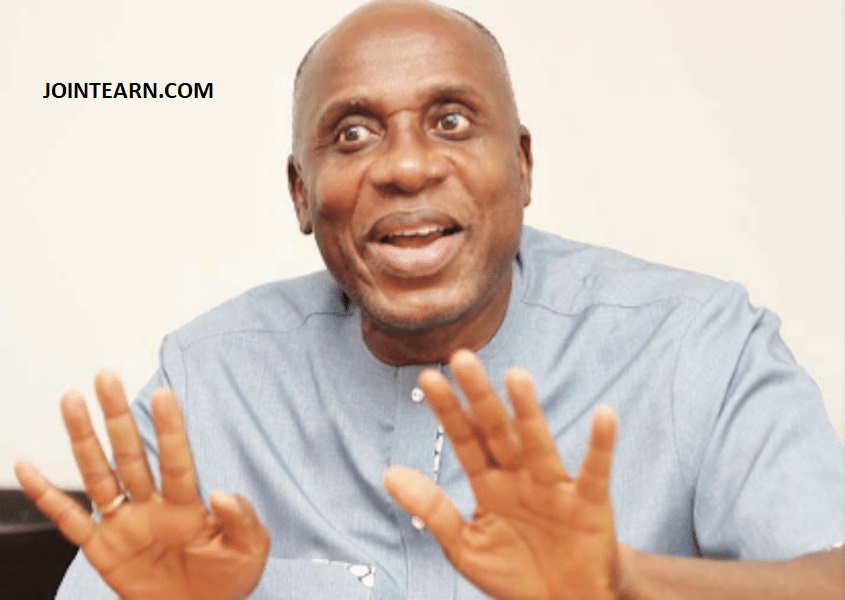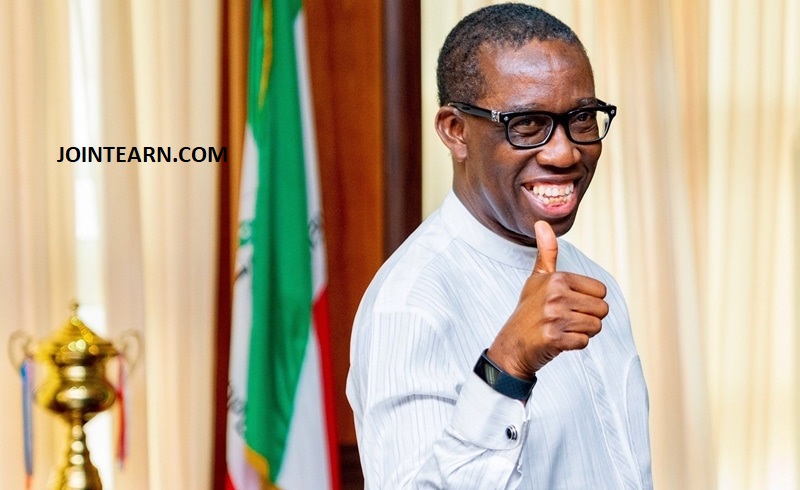Former Minister of Transportation and prominent All Progressives Congress (APC) stalwart, Rotimi Amaechi, has sharply criticized President Bola Tinubu’s decision to declare a state of emergency in Rivers State. While acknowledging that the president did not violate any laws, Amaechi argued that Tinubu’s move breached the Constitution, particularly in relation to the fundamental rights of citizens and the limits of executive powers.
Amaechi, who is a native of Rivers State and a former Governor of the state, made his remarks during an exclusive interview on Monday. He expressed his concerns about the state of emergency, which was declared in the state by Tinubu following a wave of violence and political unrest that reportedly threatened the safety and stability of the region during the 2023 elections.
The former minister’s statements come amid growing public debate and legal challenges regarding the propriety of the emergency declaration. Critics argue that such a move could set a dangerous precedent for executive overreach, while supporters claim it was a necessary action to restore order in the troubled state.
Amaechi’s Legal Concerns: A Breach of Constitutional Provisions
Rotimi Amaechi’s central argument revolves around his assertion that President Tinubu’s declaration of a state of emergency in Rivers State went against the tenets of the Nigerian Constitution. According to the Constitution, the president has the authority to declare a state of emergency in specific situations, such as in times of war, rebellion, or when the security of Nigeria is threatened. However, Amaechi insists that such a measure must be within the boundaries of constitutional limits.
“The president did not break any law by declaring a state of emergency, but he broke the Constitution in doing so,” Amaechi stated. “Under the Constitution, the powers of the president are limited when it comes to declaring a state of emergency. It is not a decision that should be made lightly or without proper consultation.”
Amaechi argued that the powers vested in the president to declare a state of emergency were meant to address national issues of security, such as insurgencies or full-scale civil disturbances, not routine political disputes or election-related violence. He expressed concern that the state of emergency declared in Rivers was too broad and lacked the necessary justification in terms of the level of threat to justify such a drastic action.
Political Context and Reactions
The state of emergency in Rivers came in the wake of the contentious 2023 general elections, where Rivers State witnessed clashes between political factions, as well as incidents of electoral violence. The state was also the site of several high-profile political confrontations, particularly between the PDP and APC factions. The situation prompted President Tinubu to take action, arguing that a state of emergency was essential to restore peace and protect the citizens of Rivers.
Supporters of the state of emergency have emphasized the importance of maintaining order in regions where violence and instability threaten the democratic process. The move was particularly welcomed by security agencies, who claimed that the declaration provided the legal framework for them to effectively address the violence and criminal activities in the state.
However, Amaechi and other critics have called the decision a politically motivated tactic to control Rivers State, a state that has long been considered a PDP stronghold. Amaechi has publicly noted that the situation in Rivers did not warrant such drastic measures, suggesting that the state’s existing security apparatus could have handled the situation without a constitutional breach.
The Limits of Presidential Powers
In his comments, Amaechi also raised concerns about the broader implications of such a decision. He warned that allowing the president to unilaterally declare a state of emergency in states facing political turmoil could set a dangerous precedent for future governments. Amaechi stressed the importance of adhering to constitutional guidelines and ensuring that such extraordinary powers are not abused for political gain.
“This is not just about Rivers State; it’s about the principle of governance in Nigeria,” Amaechi said. “If we allow this kind of action to stand without proper scrutiny, we are opening the door for future administrations to abuse the powers given to them by the Constitution.”
Amaechi’s position reflects a broader debate in Nigerian political circles about the extent of executive powers and the need for checks and balances in the country’s governance structures. While the president does have the authority to declare a state of emergency, critics argue that it must be done in a way that is transparent and in accordance with the rule of law.
Constitutional Limitations and Judicial Oversight
Legal experts have weighed in on the controversy, agreeing with Amaechi that any declaration of a state of emergency must pass through the necessary constitutional and legal processes. According to Section 305 of the Nigerian Constitution, the declaration must be based on credible evidence of a genuine threat to national security or the public peace, and it must be approved by the National Assembly.
Some legal scholars have also pointed out that the Constitution requires the president to provide detailed justification for such declarations and to limit the emergency powers to only the affected regions. Critics suggest that the state of emergency in Rivers State was too far-reaching and was not adequately justified by the level of violence and unrest.
While the judiciary has not yet issued a ruling on the matter, legal observers expect that this case could set an important precedent for future discussions on the scope of executive powers in Nigeria.
Public Opinion and Political Ramifications
Public reactions to the state of emergency have been mixed. In Rivers State, where the violence was most acute, many citizens have expressed relief that the president took action to restore order. However, others have voiced concerns about the potential for increased military presence and the erosion of civil liberties in the state.
“I believe the state of emergency was necessary to protect lives and property, but I am also worried about the long-term effects on our rights,” one Rivers resident said. “We don’t want to see a repeat of this every time there’s an election or a political problem.”
On the other hand, political analysts argue that the declaration could further polarize an already divided political landscape in Nigeria. With the upcoming gubernatorial elections in mind, many fear that the move could be seen as a means of curtailing opposition influence in key regions.
Conclusion: Moving Forward
As the debate over the constitutionality of the state of emergency declaration continues, it is clear that the decision has far-reaching implications for Nigeria’s political and legal future. While the president has asserted that the move was necessary for maintaining peace in Rivers State, critics like Rotimi Amaechi remain adamant that it represents a breach of constitutional principles.
In the coming weeks, it is expected that both legal and political battles will unfold as the country grapples with the implications of this controversial decision. For now, the legal process will determine whether President Tinubu’s declaration was within constitutional bounds, and whether Nigeria’s democratic institutions can prevent the misuse of executive powers in the future.












